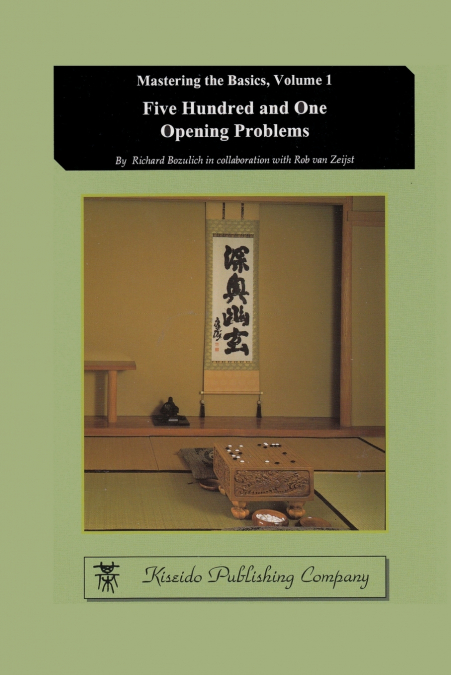
 Librería Desdémona
Librería Desdémona
 Librería Samer Atenea
Librería Samer Atenea
 Librería Aciertas (Toledo)
Librería Aciertas (Toledo)
 Kálamo Books
Kálamo Books
 Librería Perelló (Valencia)
Librería Perelló (Valencia)
 Librería Elías (Asturias)
Librería Elías (Asturias)
 Donde los libros
Donde los libros
 Librería Kolima (Madrid)
Librería Kolima (Madrid)
 Librería Proteo (Málaga)
Librería Proteo (Málaga)
Along with playing games, practice is essential for mastering the opening; namely, familiarizing yourself with standard positions and knowing which principles to use for deciding your moves. However, the practice players get from their games is limited, whereas problem books, such as this one, can give amateur go players a vast variety of positions that might arise in their games. Practice also keeps the mind sharp and in top form. This is the reason professionals are always solving problems and often spend considerable time composing them.Practice must also include repetition if it is to be effective. If you have to find the same kind of move in similar patterns over and over again, spotting that move in a problem or in a game will become second nature.This book provides a vast number and a large variety of opening problems for the inexperienced player. Explanations are brief, with emphasis being placed on principles to give the reader a feeling of what a good opening move is. To this end, each problem is presented by stating an opening principle that can be used to solve the problem. By seeing how these opening principles are used in games, your intuition in the opening will become highly developed.